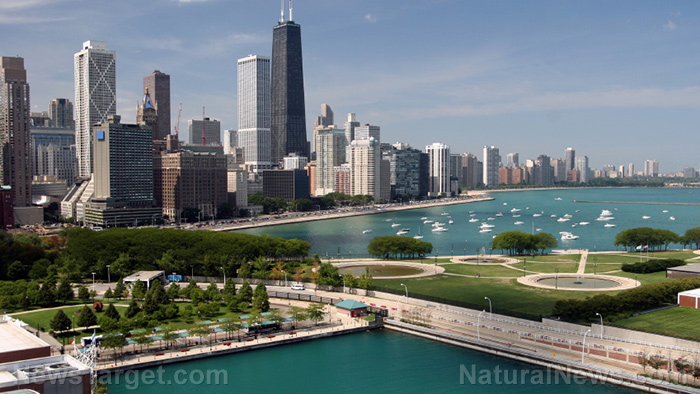
It looks like the European Union could be on its way to saying goodbye to Monsanto's most popular (and toxic) herbicide. Glyphosate, the star ingredient in Monsanto's infamous Roundup, has been heavily scrutinized for its potential hazards and now, a bitter debate over re-licensing the noxious herbicide is brewing across the pond.
Over the summer, members of the European Parliament (MEPs) reached out to the U.S. District Court judge presiding over the Monsanto Roundup case, seeking to learn more about the science behind glyphosate. Specifically, the MEPs wanted to learn more about the validity behind the claims of glyphosate's carcinogenic capacity. MEPs from a number of countries signed the request, including Bart Staes of Belgium, Heidi Hautala of Finland, Benedek Javor of Hungary and Michele Rivasi of France. Together, they asked U.S. District Court Judge Vince Chhabria to provide them with access to a number of related court documents and transcripts from the ongoing multi-district litigation against Monsanto taking place in Northern California. The EU has been struggling to come to a conclusive vote on glyphosate.
The MEPs are looking to gain assistance with unraveling the scientific evidence for and against the safety of glyphosate. Most notably, they want to better understand how World Health Organization’s International Agency for Research on Cancer and the European Food Safety Authority came to their “contradictory conclusions on the carcinogenicity of glyphosate."
But not every country was interested in examining the evidence more closely; for some, it seems the determinations of these acclaimed organizations is more than enough. In July, an official from France's environmental ministry revealed to the media that France would be voting against the re-authorization of glyphosate. The ministry official declared, "France will vote against the re-authorization of glyphosate due to the doubts that remain about its dangerousness."
The European Union (EU) has failed to come to a conclusive vote on glyphosate on multiple occasions. The most recent vote, just a few months ago, also ended in a stalemate. The 28 member countries were at odds once again this summer; to approve authorization would grant Monsanto's Roundup another 15 years on the European market -- surely a decision no one wants to make lightly. Countries decidedly against renewing authorization for glyphosate, like France, prevented the toxic product from receiving a qualified majority of the vote.
For now, Monsanto's Roundup has been given an 18-month extension, while officials continue to sift through the evidence and try to come to a decision. As BaumHedlandLaw.com explains, "With the vote to extend the license, experts from the member countries were able to set new requirements for the use of glyphosate herbicide, including scrutiny of preharvest use and minimizing glyphosate use in public spaces such as parks and playgrounds."
The toxicity of glyphosate has been well-documented over the years -- and while the EU's action in this matter may be moving slowly, at least they are actually having a debate. Here in the U.S., any sort of legislation on Monsanto's most profitable product seems to have been obscured by corruption and collusion -- particularly with the help of the EPA.
Numerous reports have suggested that the federal agency has colluded with Monsanto to keep glyphosate on the market even in light of the product's blatant and obvious hazards.
As Natural News writer Tracey Watson reports, it was just recently revealed that EPA agents actively sought to shut down an investigation of glyphosate by another federal agency, the Agency for Toxic Substances and Disease Registry (ATSDR). Back in 2015, the ATSDR was looking to conduct their own assessment of glyphosate, until the EPA stepped in. According to the EPA, there was no need for both agencies to examine the herbicide, and eventually the ATSDR put their report on hold, since the EPA was supposedly investigating the product as well. Watson reports that two years later, the EPA still hasn't released their report. [Related: Keep up-to-date with the latest news on Roundup at Glyphosate.news.]
Sources for this article include:
Please contact us for more information.















